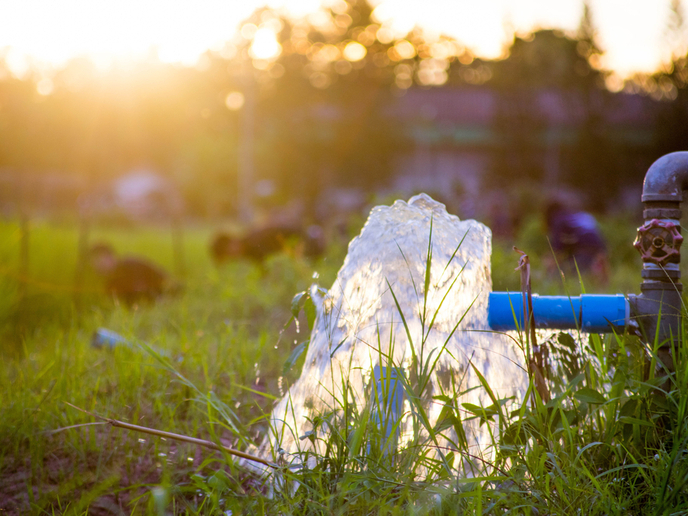Collective action to address overexploitation of groundwater resources and boost rural economies
There is an urgent need to curtail the overexploitation of groundwater resources, but there is little agreement on how this can be achieved. “A major challenge lies in better integrating agricultural development objectives with sustainable groundwater management goals,” says MSC fellow Josselin Rouillard of the EU-funded RURECO(opens in new window) project. “Farming communities must be able adapt to a changing water resource base while fostering a competitive, innovative and dynamic rural economy.”
Collective action for managing a common good
Against this background, the RURECO team looked at how to create and sustain collective action in the management of agricultural water use to move towards a more sustainable and resilient future. Research was divided into two areas. Regarding the first, Rouillard and project coordinator Jean-Daniel Rinaudo state: “We improved the understanding of hybrid (state and users) institutions managing groundwater resources, especially when the management objective is not solely to prevent resource exhaustion but environmental protection.” The results of a detailed survey of hybrid institutions established in France to manage water allocation are presented in a paper(opens in new window) published in Agricultural Water Management. “A similar examination was conducted during research visits carried out in countries that are at the forefront of having such agricultural water user associations design water allocation rules – i.e. Australia, New Zealand, Spain and the United States (California).” The second area of focus involved developing a public participation foresight methodology to make groundwater ‘visible’ to agricultural water users (irrigators) and help initiate collective action to tackle overexploitation of groundwater resources. “The approach relies on the use of narrative scenarios that depict possible future evolution of the resource and its use, with different assumptions related to its management,” Rouillard and Rinaudo explain. The researchers employed a mix of qualitative methodological approaches in this quest, including surveys and interviews as well as workshops and foresight methodologies. Two contrasting case studies engaged a total of 72 actors in participatory foresight workshops, which included farmers, local authorities, regulators, industry and NGOs.
Following science, generating knowledge
Rouillard participated in a series of scientific exchanges, research visits and collaborations to advance project work and gain expertise in the subject. In December 2019, Rouillard and Rinaudo organised a workshop in San Francisco with the Environmental Defense Fund (United States NGO) on quantitative groundwater management. Amongst a long list of publications(opens in new window) including peer-review articles, books and book chapters, California WaterBlog has featured a post by Rouillard titled ‘Groundwater and agriculture: a comparison of managing scarcity and droughts in France and California’(opens in new window). Notwithstanding the research and scientific contributions, the two researchers pay tribute to the international collaborations RURECO achieved. They also speak of the strong stakeholder engagement with regulators as well as practitioners, NGOs and farmers, from within Europe to the United States, to Australia and New Zealand. Rouillard, now Research Fellow at Ecologic Institute, intends to continue reinforcing international collaboration around water issues and use his knowledge to inform policy work with the European institutions.







